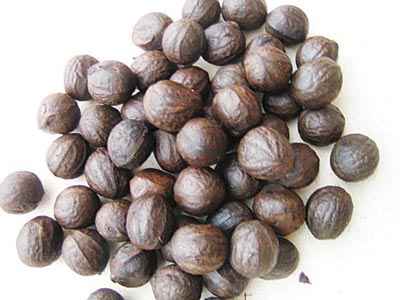Walnut is an edible, rounded and delicious seed enclosed in a hard husk, it is a global food staple that is also known as heart-healthy nut consumed all over the world, with China being the world’s largest producer.
The acceptance of walnut can be connected to its rising importance both for its fruit that is delicious and loaded with healthy nutrients as well as its quality timber used in construction, furniture and other purposes.
Walnut can be propagated through seeds, grafting and budding. But seed planting is the best method for propagation. The spacing can be 12×12m for seedlings, 10×10m, 8×8m for grafting with a population of 100 trees per acre.
Hidden Prospects in Yam Production
Grafted seedling of walnuts take within three to four years to mature while full production takes about eight to 10 years and once it starts fruiting, harvest can be expected every year.
The walnuts can be eaten as snacks just like groundnut and cashew nut. It can be eaten alone or added to a dish or food item to make walnut bread, walnut pie, walnut soup and walnut cake, among others.It should be noted that Walnut farming is not a get rich quick business, in fact growing walnuts should be consider as a long term business investment.
Economic Prospects of Sorghum in Nigeria
Average weight of walnut is 9g per nut and about fifty kilograms of nuts can be harvested per walnut tree which is equivalent to about 5555 nuts per tree with 5 pieces goes for 150 naira in Ibadan. You keep harvesting every year once production starts and harvest increases per year and can go on for 30 years.
Opportunities in walnut are located in a wide variety of industries, including healthcare, wholesale trade, retail, financial services, educational services, information, enterprise management, business support, manufacturing, leisure, research and development, real estate, and hospitality.



